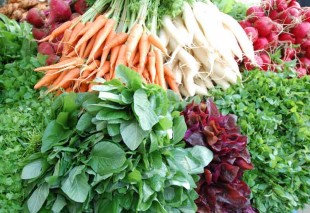

Middle East food imports set to rise to US $70bn

The cost of food imports to Arab states is expected to double over the next 20 years, potentially spurring more violence and waves of refugees, if the region's farms do not become more efficient, an agriculture expert said.
The Middle East currently imports about $35 billion of food annually, and this looks set to rise to US $70 billion in two decades as climate change impacts crop yields and the population rises, said Mahmoud Solh, of the International Center for Agricultural Research in the Dry Areas (ICARDA).
Increased dependence on food imports will likely mean higher prices for poor consumers, and thus more hunger and increased levels of strife and migration, said Solh, ICARDA's director general.
"The situation is gloomy," Solh told the Thomson Reuters Foundation by telephone from Lebanon.
Extremists thrive in places where people don't have enough to eat... For the long-term, water is the number one problem."
A drought that began in 2006, coupled with rising food prices and rural farmers migrating into cities, helped spark Syria's civil war, he said.
He was forced to flee Syria in 2012 because of rising violence, and left behind a large research station.
Before the war, Syria was largely self-sufficient in grain, and could export in good years, but production has dropped by more than 60% since fighting began in 2011, he said.
The broader Middle East should be able to meet its own food needs, but per capita yields for key grains and other staple crops are low across the much of the region, he said.
In some areas, yields are as low as 1 tonne per hectare when they should be five times higher, Solh said.
There are some notable exceptions, he said, where improved technology and better management have helped boost production.
In parts of Egypt's Nile River Delta, farmers have increased yields while decreasing water intensity by using special drills to plant grain on beds, rather than in traditional rows, he said.
Improved seeds bred specially for dry climates are also helping farmers, he said.
Still, productivity gains from new technologies or climate smart agriculture have not raised yields fast enough to keep pace with population growth across several Middle Eastern countries with worrying implications for future stability, he said.